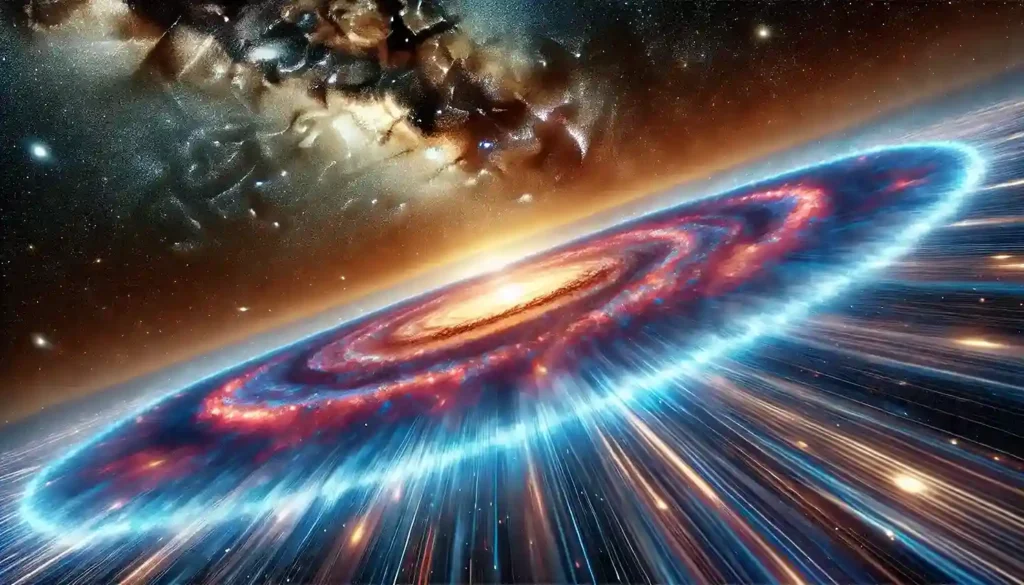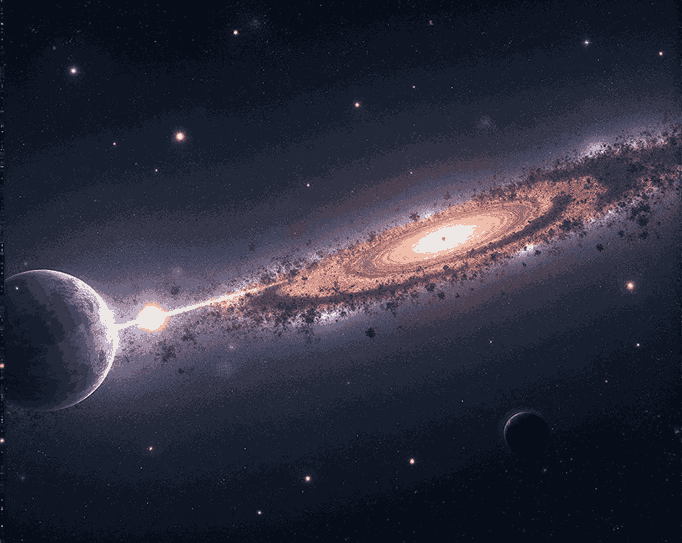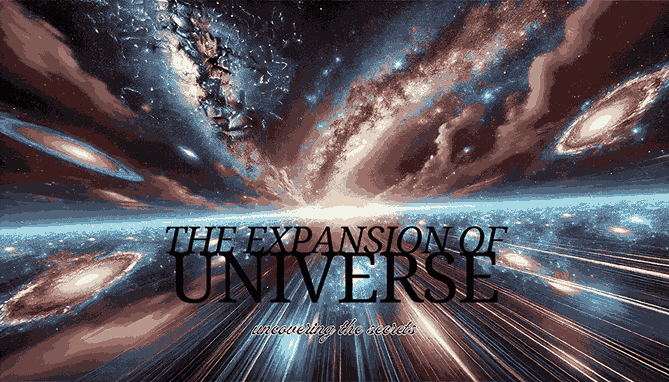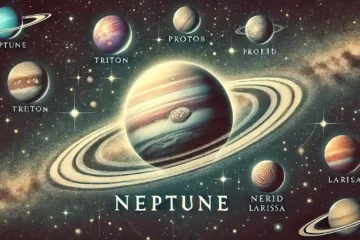The vastness has posed numerous challenges to scientists, astronomers, and philosophers in equal measure for ages. The one idea that touches on one of the most complex matters related to the universe is to do with matter’s distribution and its rate of expansion.
From the onset of the Big Bang, the universe has apparently been expanding more rapidly than itself, and parts of the universe may be found to grow even at a pace faster than light. At first, this sounds quite impossible according to everything that you know about physics. It is a well-researched thing, however. We will, nevertheless, get down into the nitty gritties and come to the core of what it means for a universe to expand faster than the speed of light and discuss all this.
Let us get started!
The Expansion of the Universe: Evidence and Insights
In the late 1920s Edwin Hubble made such a brilliant discovery that of all his names it should be most closely associated with that of a moving and expanding universe. He has seen that the most distant galaxies are being receded from the earth always, and the farthest of all galaxies from us is the fastest recessionary galaxy that led to conception which can better be known as l by Hubble-the named astronomer. More popularly accepted that has termed it “the universe always expanding in all directions.
But what meaning then has this expansion
It can be understood in the manner of a balloon. Take a balloon and blow into it. The skin of the balloon, which is the universe, stretches so that any two points on that skin now would move farther apart. That means – even though the galaxies are moving away from each other and the space between them is moving away or expanding.
The Quickest Thing in the Universe Causality of Space-Time
This understanding, however, we must first provide as necessary about that one fundamental law in physics-the speed of light. Einstein’s relativity postulates that there is a cosmic speed limit exists that no one in the universe could exceed, and that is the speed of light in the vacuum of about 299,792 kilometers per second, or about 186,282 miles per second. This is usually referred to as “the speed limit of the universe.”
When scientists refer to these objects moving at or faster than light speed, they do not mean physical objects breaking that speed limit. They refer to space expansion, which conveniently conforms to none of the rules and limitations of mass and energy
The Question of Why the Universe Can Truly Expand at a Speed Greater Than Light Itself
You may well wonder, how then shall we explain the fact that the universe is supposed to be able to grow, as some theorists hold, even faster than light, if light is indeed the ultimate speed limit?

What Makes the Universe Capable of Expanding at a Rate Faster Than Light?
Hence space cannot have speed more than the speed of light. Space can, in fact, “expand” at infinite speed, and then it could indeed carry galaxies along with it at a greater-than-speed-of-light velocity.
Here is an analogy: assume you are on a rubber circle and somebody stretches that rubber circle. You are not gliding through the circle, but the circle is elongating. Hence, the gap between you and another person in the circle is increasing. However, the rubber ring can expand any speed. In the same way, space can grow at the rate higher than light without breaking any of the physical rules.
Cosmic Inflation: A Unified Surge in the Universe’s Growth and Curvature
In order to explain how the Universe can stretch faster than light, we will have to tell you about perhaps the most salient cosmological notion: cosmic inflation. A few moments after the beginning of the Universe, the beginning of the Big Bang, the Universe experienced a certain stage of expansion that actually surpassed the speed of light: it was called inflation. Everything scaling up many orders of magnitude in a fraction of a second and space itself.
Generally, cosmic inflation is absent from various factors that explain the homogeneity of the large-scale structure of the Universe. Without inflation, different parts of the Universe would not have equalized their temperatures and densities in time. The form of inflation accommodates that rapid expansion of space faster than the speed of light, at a more uniform spread in different regions.

During the cosmic inflation phase, unique stages have settled in the history of the Universe. Thereafter, there has been development in the rate of expansion. But, the idea of cosmic inflation that brings about a phase during which expansion exceeds the speed of light has really increased our understanding of the ongUniverseansion in Universe terms.
How Dark Energy Shapes the Universe’s Expansion?
For many billions of years now since the end of the inflationary period, it has continued expanding, and it is in this expansion that an incredibly strange kind of energy-dark energy, which provides another force, resides. This force has been discovered in late 1990s research of distant supernovae and is the most significant factor in the expansion of the universe, to the great extent of making up a staggering 68% of its energy content.
Because it is believed that such dark is the bringer of a faster speed of expansion than exactly these phenomena where the human races themselves tools away from each other faster, and the faster the galaxies, the more the expansion of the universe Ts expands. With the expansion of the universe, the volume of available space among the galaxies also increased signifying that distance galaxies are moving from us with higher velocities as well. While some are so distant that most likely, their speed concerning us exceeds the speed of light. But, as we noted here earlier, such galaxies do not move through the medium of space faster than lightspeed; rather it is the space that moves.
Is It Possible to Observe Galaxies Moving Faster Than Light?
One of the most interesting consequences of the expansion of the universe at causally disconnected velocities is that there are galaxies we can never see, even if we had the best telescopes ever made. For some galaxies, the light will not reach us because they are receding from us. When a galaxy goes beyond the “cosmic event horizon,” which means the distance at which all parts of the galaxy are receding from an observer at a speed greater than that of light, it ceases to exist for that observer.
The Rapid Expansion of the Universe: What Lies Ahead in This Chaotic Scenario?
Faster-than-light expansion of the Universe is having its current repercussions that humanity will feel in the future. It is said that if the speed of increasing expansion continues to keep going faster with the effect of dark energy, this Universe will become colder and darker as it would have more and more of such separated galactic clusters. As a result, the most distant galaxies are going to be lost forever beyond the observational barrier of the universe and will not be seen anymore, as though eternally. This eventually gave way into a purer expansion, which is bounded with no limit, termed Big Freeze.
However, there are countless others that need to challenge with relating or understanding dark energy: and especially, with what it means to the future of the Universe. One of these theorizes that dark energy might not actually be constant but might change strategy with time, and these scenarios include ‘The Big Crunch,’ that is, the collapse of the Universe within itself, or ‘The Big Rip,’ where every little thing, from the largest mass to the smallest things, is torn apart from each other by expansion all the way down to atoms.
Clarifying Myths About the Universe Expanding Faster Than Light
While explaining the very important faster-than-light expansion of space, it is equally important to clear several common misconceptions.
Misconception 1
It is important to note that the motion of galaxies with respect to the Universe is barely such that there is no galaxy which is, or ever can, be moving through the Universe faster than light. But because they are receding faster than the speed of light, it is better to think of their expansion as the expansion of space itself rather than the movement of the galaxies apart from each other.
Misconception 2
Faster than light expansion violates the Einstein limit of speed for massive objects.
Reality: One must understand that Einstein’s postulate deals with motion of bodies concerning space, and not with expansion of space itself. Space expands; hence, it can expand faster than light.
Misconception 3
You can’t see a galaxy with any speed greater than light.
However, when these galaxies pass the event horizon of the universe, but no observation in the universe can perceive them.
Conclusion
Indeed, many phenomena have begged so much from within the universe, and set their challenge upon physical sciences and our understanding of reality itself. An expanding universe could outrun the speed of light, is at first too much to believe. But it is the reality well rooted in cosmological principles. This changes everything about how we see the universe, and shows just how important the role of science is in discovering the true nature of our reality.
With scientific endeavor searching for dark energy, trying to calculate the way the universe expands, we might come closer to some more weird revelations about the ways of reality. For now, let us remain gratified-if slightly amused-to realize that space itself expands.
FAQs
Is it really possible for the universe to expand faster than the speed of light?
Affirmative. Space can expand at a rate faster than light and not that the laws of physics themselves are broken, as the expansion of space is not constrained by the speed of light.
What is cosmic inflation?
Cosmic inflation refers to a short period of rapid expansion of the universe just after the Big Bang when the universe grew exponentially faster than the speed of light, explaining among other things the large-scale structure and uniformity we see.
How does dark energy affect the universe’s expansion?
Dark energy is responsible for the accelerated universe expansion, which increases as galaxies recede from one another at greater speeds and contributes to continuing faster-than-light growth in our universe.
What are the potential future scenarios for the universe’s expansion?
A “Big Freeze,” where galaxies drift apart forever, or a “Big Rip,” where expansion in the universe tears everything apart, even down to atoms, are possible outcomes.




